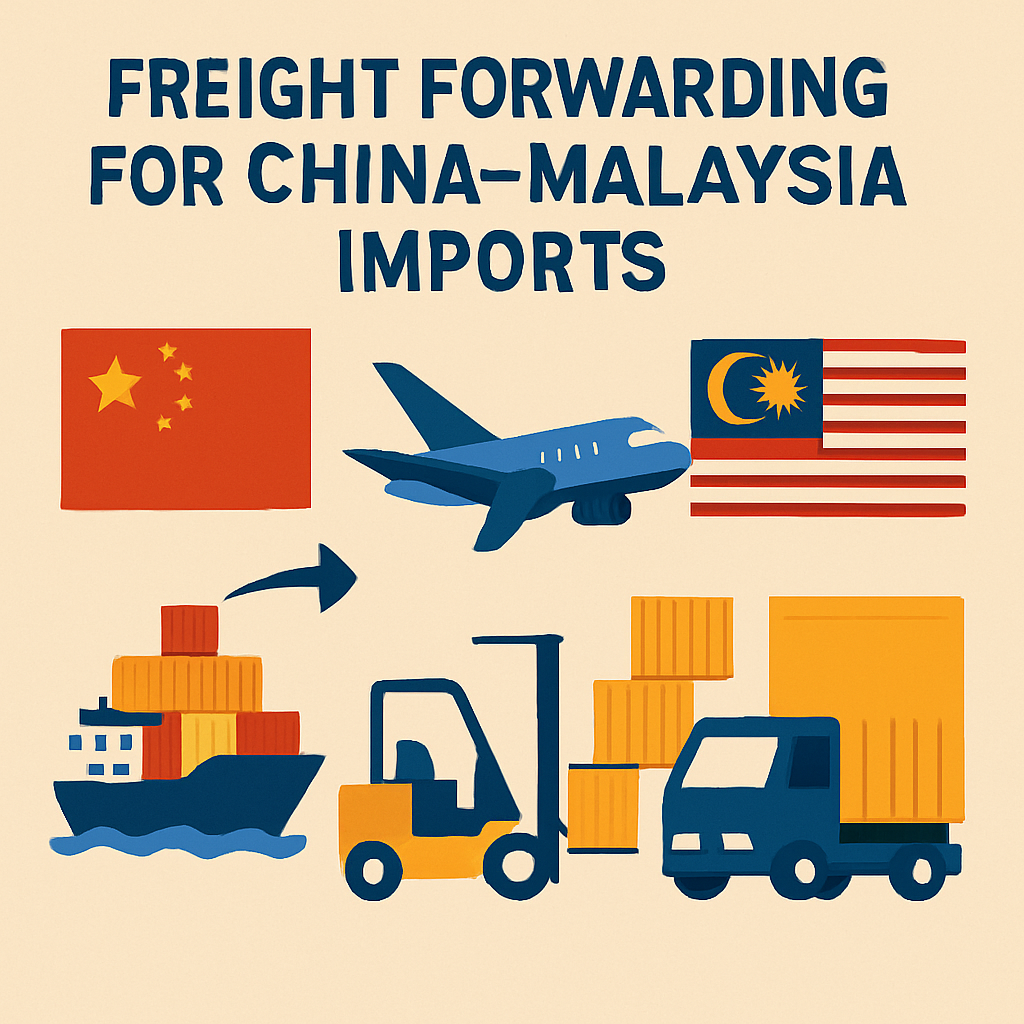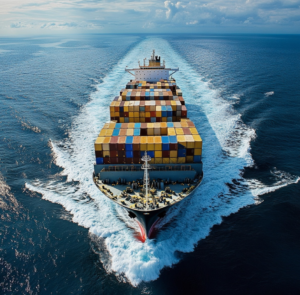What is Freight Forwarding? A Complete How-to Guide for Malaysian Importers
Venturing into international trade can be overwhelming for small business owners in Malaysia. Every step, from sourcing a supplier overseas to bringing products safely through customs, comes with its own set of challenges. This is where the importance of freight forwarding Malaysia services becomes clear. A reliable freight forwarder Malaysia doesn’t just move goods; they become your partner, ensuring that every detail—be it import logistics Malaysia compliance or cost-effective international freight routing—is meticulously handled.
This deep-dive guide will walk Malaysian importers through everything you need to know about freight forwarding, using real-world case studies, actionable tips, and clear explanations. Whether you’re new to the import scene or looking to optimize your current logistics, this article will empower you with practical knowledge and confidence.
Table of Contents
- What is Freight Forwarding?
- The Role of a Freight Forwarder in Malaysia
- Types of Freight Forwarding Services
- Why Do Malaysian Importers Need Freight Forwarders?
- The Freight Forwarding Process: Step by Step
- Case Studies: Real SME Successes and Lessons Learned
- How to Choose the Right Freight Forwarder in Malaysia
- Tips for Efficient Import Logistics Malaysia
- Common Challenges in International Freight—and How to Solve Them
- Frequently Asked Questions on Freight Forwarding Malaysia
- Conclusion
1. What is Freight Forwarding?
Freight forwarding is the careful coordination, organization, and transportation of goods from one location to another, often across countries or continents. Unlike shipping companies or carriers—who operate the boats, planes, or trucks—a freight forwarder Malaysia acts as a logistics expert and intermediary, ensuring your cargo travels from supplier to destination efficiently and legally.
A typical freight forwarder provides the following services:
- Sourcing the best transport options (sea, air, road, rail, or a mix)
- Booking shipping or cargo space
- Preparing and managing all shipping and customs documentation
- Handling insurance and advisory on packaging or storage
- Navigating import/export regulations and taxes
Freight forwarders are especially vital in international freight because each country has unique rules, procedures, and logistics infrastructure. For Malaysian small businesses, working with someone who deeply understands import logistics Malaysia significantly reduces operational risks.
Industry Fact: According to UNCTAD (2022), over 80% of global merchandise trade by volume is carried via sea freight, and the vast majority of these shipments involve a freight forwarder at some stage for coordination and compliance.
2. The Role of a Freight Forwarder in Malaysia
A freight forwarder Malaysia manages the technical, regulatory, and logistical requirements for moving goods in and out of Malaysia. They combine in-depth local expertise with a global network to ensure smooth international transactions. Their main roles include:
- Shipment Coordination: Arranging efficient movement of goods between Malaysia and other countries through various transport modes.
- Documentation Management: Preparing mandatory paperwork such as commercial invoices, packing lists, air waybills, bills of lading, and certificates of origin—each essential for customs clearance.
- Customs Brokerage: Liaising with Malaysian customs for timely, legitimate clearance and ensuring compliance with Royal Malaysian Customs Department (Kastam Diraja Malaysia) standards.
- Cost Optimization: Advising on trade agreements (like ASEAN FTAs) to secure preferential tariffs and recommending shipment consolidation to minimize costs.
- Risk Management: Providing insurance options, ensuring packages are secure, and troubleshooting delivery problems.
- Local Distribution: Arranging last-mile delivery from ports/airports to your premises in Kuala Lumpur, Penang, Johor, or any Malaysian city.
Example:
Suppose you’re importing organic skincare products from France to Kuala Lumpur. Your freight forwarder not only arranges space on a ship from Marseille to Port Klang but also:
- Handles import permits for health and beauty goods
- Manages customs paperwork under Malaysia’s import regulations
- Advises on special labeling or packaging to meet Malaysian standards
- Organizes onward delivery from the port to your retail outlet
Selecting a forwarder familiar with Malaysia’s trade landscape can save weeks of delays and prevent costly penalties.
3. Types of Freight Forwarding Services
Freight forwarding Malaysia covers a spectrum of services tailored to your cargo’s nature, urgency, and origin/destination. The main types include:
a) Sea Freight
The backbone for bulk or containerized imports, ideal for:
- Large, heavy, or non-urgent items (e.g., textiles, electronics, raw materials)
- Most common shipping method for trade with China, Europe, Australia, USA, and within ASEAN
Main Malaysian Ports:
- Port Klang (Selangor, West Malaysia): Malaysia’s busiest port, comprehensive container facilities.
- Penang Port (Northern region): Key for businesses in northern Malaysia.
- Johor Port (South Malaysia): Strategic proximity to Singapore for transshipment.
b) Air Freight
Suited for fast, high-value, or perishable cargo (e.g., electronics, pharmaceuticals, fashion apparel, fresh produce).
Main International Airports in Malaysia:
- KLIA (Kuala Lumpur International Airport): Major international cargo hub.
- Penang International Airport: Essential for northern states.
- Senai International Airport (Johor): Efficient for shipments from Singapore or southern Thailand.
c) Land and Rail Freight
Ideal for cross-border trade with neighboring countries (Thailand and Singapore), or for transporting containers to inland depots and industrial zones.
- Trucking: Used for fast, direct movement; critical for regional e-commerce.
- Rail: Efficient for bulk commodities or heavy industrial goods via Keretapi Tanah Melayu (KTM) network.
d) Multimodal Freight
A mix of sea, air, and/or land routes, maximizing both cost and speed. For example, using sea freight for bulk movement to Singapore, then trucking to Johor.
e) Value-Added Services
- Cargo consolidation/deconsolidation
- Special warehousing (bonded, cold storage, hazardous goods)
- Customs consulting and compliance audits
Example:
If you’re importing spare auto parts from Germany on a tight deadline, your forwarder might arrange air freight to KLIA, immediate customs clearance, and same-day delivery to your workshop via local trucking.
4. Why Do Malaysian Importers Need Freight Forwarders?
Many Malaysian small business owners consider handling shipments on their own to save costs. However, due to the complexity of international freight, this often leads to delays, legal trouble, or unexpected expenses. Using a freight forwarder Malaysia offers benefits far beyond simple transport.
Key Benefits:
- Regulatory Expertise: International trade involves layers of regulations—import permits, product classifications, taxes.
- Time and Labor Savings: Eliminate tedious paperwork and let experts expedite processes.
- Cost Efficiency: Forwarders often get better rates due to their shipping volume, and can consolidate shipments, reducing per-unit costs.
- Inventory Predictability: Scheduled, tracked shipments mean fewer stockouts or overstock situations.
- Problem Solving: A forwarder’s network can help reroute shipments around disruptions or provide alternative transport options quickly.
- Risk Reduction: Forwarders provide comprehensive insurance and ensure compliance at every step, minimizing your risk.
Real-World Example:
Case: Siti owns a small electronics shop in Johor Bahru and decided to import Bluetooth speakers from South Korea on her own. She was unaware that the products required specific import permits for wireless devices (SIRIM certification). As a result, Malaysian customs seized her goods at Johor Port, causing a three-week delay and RM7,000 in extra costs.
Solution: Siti switched to a highly-rated freight forwarder, who not only advised her on the SIRIM permits in advance but also negotiated group-rate shipping with other local importers, reducing her per-shipment costs by 18%.
Stat: The Malaysian Ministry of International Trade and Industry (MITI, 2021) noted that SMEs using professional forwarding services experienced 30% fewer shipping delays and enjoyed average logistics cost savings of around 20%.




